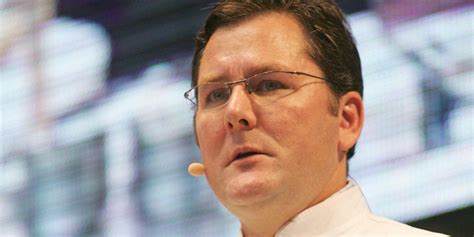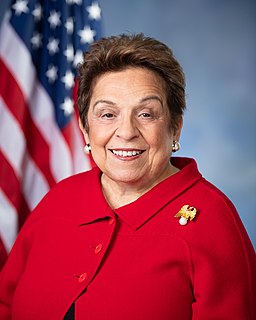A Quote by Joan Wallach Scott
There are students whose religious upbringing is going to make them feel uncomfortable in a class where certain kinds of secular ideas are presented. There are students whose ideas about history or sexuality are going to be similarly challenged to question, to affirm or to change those ideas. That doesn't mean they shouldn't be exposed to them; that's why they're at school. That's why they come to university: to be taught how to think well and critically about material that they're being presented with. But it's the teacher who is certified to teach them how to do that.
Quote Topics
About
Affirm
Being
Certain
Certified
Challenged
Change
Class
Come
Critically
Exposed
Feel
Going
History
How
Ideas
Kinds
Make
Material
Mean
Presented
Question
Religious
School
Secular
Sexuality
Similarly
Students
Taught
Teach
Teacher
Them
Think
Those
Uncomfortable
University
Upbringing
Well
Whose
Why
Related Quotes
We must continually remind students in the classroom that expression of different opinions and dissenting ideas affirms the intellectual process. We should forcefully explain that our role is not to teach them to think as we do but rather to teach them, by example, the importance of taking a stance that is rooted in rigorous engagement with the full range of ideas about a topic.
There is this thing called the university, and everybody goes there now. And there are these things called teachers who make students read this book with good ideas or that book with good ideas until that's where we get our ideas. We don't think them; we read them in books. I like Utopian talk, speculation about what our planet should be, anger about what our planet is. I think writers are the most important members of society, not just potentially but actually. Good writers must have and stand by their own ideas.
It's important to teach students about the reality of the system, that it is in fact the case that they are being targeted unfairly, that the rules have been set up in a way that authorize unfair treatment of them, and how difficult it is to challenge these laws in the courts. We need to teach them how our politics have changed in recent years, how there has been, in fact, a backlash. But we need to couple that information with stories of how people in the past have challenged these kinds of injustices, and the role that youth have played historically in those struggles.
In the most basic terms it was about how when we experience art without critical awareness we consent to the ideas being promoted, either intentionally or unintentionally, by the filmmaker. For instance, if you watch a racist comedian and laugh at his jokes, you are consenting to the prejudices inherent within them. Similarly, if you watch a movie which perpetuates conventional ideas about race, gender, etc., you are consenting to them and not affecting change in any way.
There are more ideas on earth than intellectuals imagine. And these ideas are more active, stronger, more resistant, more passionate than "politicians" think. We have to be there at the birth of ideas, the bursting outward of their force: not in books expressing them, but in events manifesting this force, in struggles carried on around ideas, for or against them. Ideas do not rule the world. But it is because the world has ideas (and because it constantly produces them) that it is not passively ruled by those who are its leaders or those who would like to teach it, once and for all, what it must think.
Ideas come mostly bottoms-up. They come when you have a free flow of ideas and you have people able to combine multiple ideas into one concept... And you've got to have competition, too. You've got to say, 'We're going to have 10 different ideas, nine of them are going to fail, and the one that does the best is going to move forward.'
The university is the place where the pursuit of truth is taught, the rules for learning how to pursue it are explained, and students begin to understand how to evaluate the seriousness of truth. Those are incredibly important lessons, and only the teachers' academic freedom can protect them because there will always be people who disagree with or disapprove of the ideas they are trying to convey.
The reason you go to university is to be taught, is to learn how to think more clearly, to call into question the ideas that you came with and think about whether or not they are the ideas you will always want to hold. A university education at its best is a time of confusion and questioning, a time to learn how to think clearly about the values and principles that guide one's life. Of course, it's also a time to acquire the skills needed for jobs in the "real world," but the part about becoming an adult with ideals and integrity is also important.
The thing about education - and why I'm so passionate about the position and status of the university - is that it's supposed to teach citizens how to think better, how to think critically, how to tell truth from falsehood, how to make a judgment about when they're being lied to and duped and when they're not, how to evaluate scientific teaching. Losing that training of citizens is an extremely dangerous road to go down.
If you write, good ideas must come welling up into you so that you have something to write. If good ideas do not come at once, or for a long time, do not be troubled at all. Wait for them. Put down little ideas no matter how insignificant they are. But do not feel, any more, guilty about idleness and solitude.
If the students don't want to learn about evolution, they shouldn't be in the course. A biology course that teaches creationism is not a science course, it's a religion course. So the students demanding that creationism be given credence in that course are out of line and are denying the academic freedom of the professor. They are calling into question the scientific basis of the material that's being presented. And students are not in a position to do that.
I also knew that if people have a position on something and you try to argue them into changing it, you’re going to strengthen that position. If you want to change people’s ideas, you shouldn’t try to convince them intellectually. What you need to do is get them into a situation where they’ll have to act on ideas not argue about them.



































